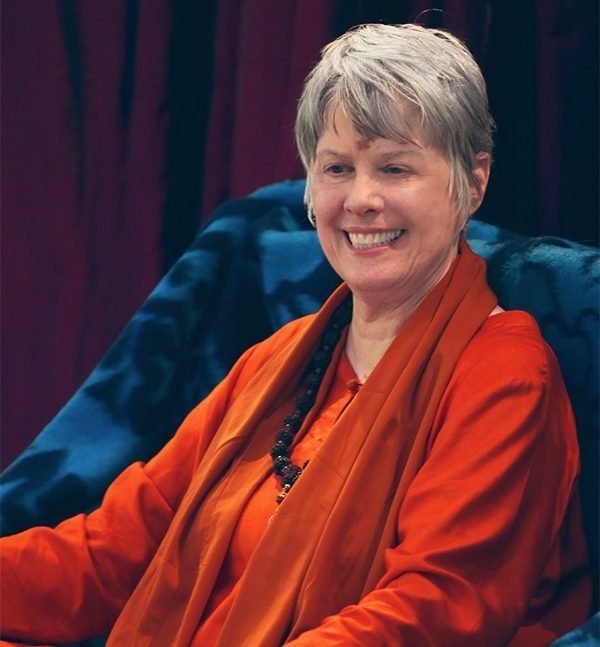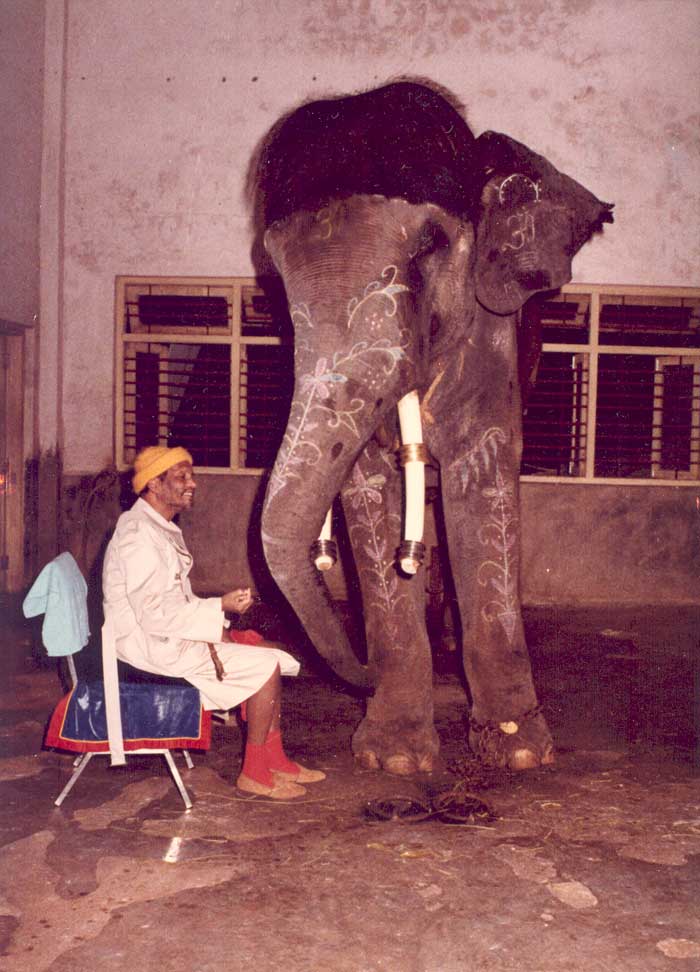 By Swami Nirmalananda Saraswati
By Swami Nirmalananda Saraswati
Echoing through the ages, the question continues to arise: what is a human being? Considered by the ancient Greeks and by many philosophers and priests since, the question is now being explored in modern media through comparison with vampires, werewolves and zombies. While movies and TV shows are pursuing a lucrative theme, they are also offering a modern-day version of Krishna’s discourse in Chapter 16 of the Bhagavadgita, which is subtitled “The Divine and Demoniacal.” Krishna expounds on your innate divinity and how to fulfill the purpose of your life for 15 chapters, and then clarifies that the human being is a mix of divine and demoniacal qualities. You have to decide which qualities you will express in your life.
 Yoga’s sages described that every species has a unique quality. They said that the bee has the most sophisticated sense of smell, with modern-day scientists now agreeing. The sages described the deer as specializing in sound and being very responsive to music, but scientists haven’t investigated this yet. The elephant has the most sensitive sense of touch, which is why they throw dirt on their backs as a sunscreen. If you have seen a baby elephant being massaged and cradled by its mothers and aunts, you understand how powerful their sense of touch is. In my early years of study with my Guru, Vijayananda, the Ashram elephant, visited the courtyard every day. Baba fed him chapattis (wheat tortillas), sugar cane and chocolates, ending the visit with an oil massage. One of the attendants would lean a ladder against his side, climb up and spread essential oils all over his back, taking the time to rub the oils in. It was amazing to watch Vijayananda’s eyes; clearly he was in bliss.
Yoga’s sages described that every species has a unique quality. They said that the bee has the most sophisticated sense of smell, with modern-day scientists now agreeing. The sages described the deer as specializing in sound and being very responsive to music, but scientists haven’t investigated this yet. The elephant has the most sensitive sense of touch, which is why they throw dirt on their backs as a sunscreen. If you have seen a baby elephant being massaged and cradled by its mothers and aunts, you understand how powerful their sense of touch is. In my early years of study with my Guru, Vijayananda, the Ashram elephant, visited the courtyard every day. Baba fed him chapattis (wheat tortillas), sugar cane and chocolates, ending the visit with an oil massage. One of the attendants would lean a ladder against his side, climb up and spread essential oils all over his back, taking the time to rub the oils in. It was amazing to watch Vijayananda’s eyes; clearly he was in bliss.
What is the unique characteristic of the human being? As a human being, you have an innate capacity to be aware, a capacity shared by no other creature. You are not merely aware, you are aware that you are aware. You know that you know; you see that you see; you think that you think. While your mind is very powerful, you are more than your mind — and you know it. You are awareness itself; your own Self is Consciousness-Itself.
Yet you have an ability to lose it. You can lose track of this great capacity in the blink of an eye. You get lost in things, in events, in situations and in other people. When you get lost in anything, it is your Self that you are losing. As a human, you have both divine and demoniacal qualities, so you must choose what you are doing with them.
To understand the choices before you, you must first understand what the divine and the demoniacal are. Yoga’s cosmology describes multiple planes of existence, including the three worlds: this physical realm, the celestial sphere and the nether world. The celestial realm abounds with devas and devis (divine beings, male and female), plus apsaras, gandharvas, angels, cherubim, seraphim and more. Their bodies are made of light and they sip amrit, the nectar of immortality.
The nether realm is populated with demons — but they are not evil beings. They are beautiful beings, with powerful bodies and huge sensual appetites. They base their life and being on their instinctual drives. Their primary motivations are power and pleasure, and anything that helps them satisfy these impulses is pursued with a single-minded focus, regardless of how it affects others. Demons are selfish, self-centered, and unrestrained in their appetites, but they are not evil. This is an important distinction.
Yoga’s cosmology says that evil does not exist. There is no devil; there is no evil force tempting you; you have no evil hidden within you. Instead, this is a cause-and-effect universe. You choose to shine with the light of your own divinity, or you hide it with the shadows you create in your mind. You must choose where to live — in the light or the shadows. The most powerful tool you have is your power of choice.
 Many of yoga’s practices address this predicament directly. For example, when you choose to practice ahimsa, non-harming, you choose to resist the inner impulse to cause pain to others. The impulse arises in every human; it is one of the demoniacal qualities that Krishna warns about. To understand it more clearly, don’t call it “demoniacal,” but label it with a simpler name — “instinctual.” Your instincts tell you to lash out, to get back, or to get even or to get ahead. You must not follow your instincts.
Many of yoga’s practices address this predicament directly. For example, when you choose to practice ahimsa, non-harming, you choose to resist the inner impulse to cause pain to others. The impulse arises in every human; it is one of the demoniacal qualities that Krishna warns about. To understand it more clearly, don’t call it “demoniacal,” but label it with a simpler name — “instinctual.” Your instincts tell you to lash out, to get back, or to get even or to get ahead. You must not follow your instincts.
Instead, look to a higher quality that is already there within you, a divine quality. Find the empathy, love or compassion that makes you able to give another person some breathing space. Or you can look for an intelligent way to handle yourself in a difficult situation. Most importantly, you can find a way to remain peaceful inside, which makes you able to make better choices and follow through on them.
You must intentionally cultivate your divine qualities. Yoga gives you the ability to make an intelligent choice, an inspired choice. In every moment, you have the ability to choose what kind of human you are being.